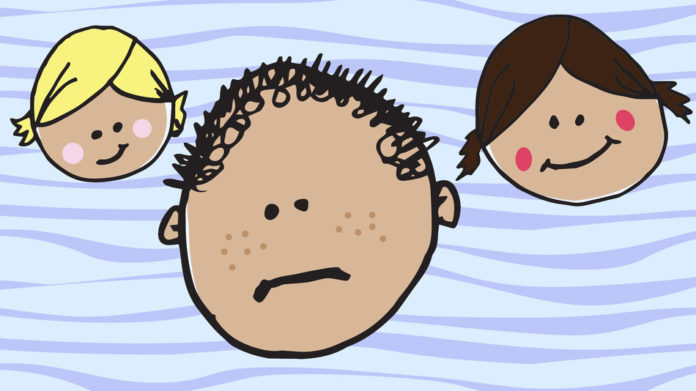How real is middle child syndrome?

It’s rough being a middle child.
The oldest kid gets undivided attention from overeager parents, while the youngest gets more freedom and special treatment. Meanwhile, the middle child is just there, squished between siblings. Right?
Despite the challenges middle children may face, some of the suggested symptoms of middle child syndrome (MCS) might be slightly hyperbolic.
In the book You’re a Better Parent Than You Think, Dr. Ray Guarendi defines MCS as “feelings of isolation, of not belonging. Enjoying neither the parental attention and expectations given to the eldest, nor the relaxed parental standards experienced by the youngest, the middle child is supposedly lost in the shuffle, caught in between with no unique position of his own.”
Even though many people believe MCS is linked to identity problems, withdrawal and behavioral issues, Guarendi explains that middle child syndrome, as a clinical disorder, just doesn’t exist. It’s merely a “prime example of how to create pathology using only a name.”
But how do you explain that to children who seem to truly feel the effects growing up in the middle? You have to start with the sometimes disputed study of birth order.
Anyone who has even a passing familiarity with the The Brady Bunch will recognize the scene above. In it, young Jan Brady, the middle daughter, sums up the experience of constantly living in her older sister’s shadow. That pop moment, which aired in 1971, has come to be a defining summary of the middle child experience, and how maligned they’ve felt for decades.
However, middle children didn’t become the focus of actual scholarly research until much later.
“In the last maybe 10 or 15 years, there have certainly been studies that have focused either specifically on middle-borns, or [that] have at least included middle-borns in the analysis,” Dr. Catherine Salmon, associate professor of psychology at the University of Redlands, tells Mashable. Salmon co-wrote The Secret Power of Middle Children, a book on birth order research and the psychological benefits middle children can use to empower themselves.
Prior to specific focus on middle-borns, the study of birth order was championed by Austrian physician Alfred Adler in the late 1920s, suggesting it had an influence on how a person leads his or her life. Unfortunately, as birth order studies continued to develop, there was one common thread — an absence of middle children. A 2010 review of 200 birth order studies, published in The Journal of Individual Psychology, found that “second-born children are largely ignored” in research literature, in a cruel twist of irony.
“The majority of research on birth order compares the first child to everybody else — which maybe tells me something about the birth order of the researchers,” Salmon laughs.

The 2000-2006 TV show “Malcolm in the Middle” explored a dysfunctional family through the eyes of its gifted middle child.
Video: YouTube, Arnold McCheeseburger
While one could argue this proves middle children truly are the most ignored kids of the bunch, the measurable effects of birth order have too many variables to deal with as far, such as gender and socioeconomic status.
In the Journal review, researchers found that “some consistent themes appear” over the decades, but the findings won’t “settle the ongoing debate about the influence of birth order.” Similarly, Salmon has grappled with the conflicting scholarly conversations about birth order, but has found common themes with middle children.
“It is pretty clear, I think, that they get less attention and investment from their parents,” she says. “Now, whether or not that causes a problem is a bigger question.”
Which brings us back to whether middle child syndrome has true psychological effects. Salmon says her research shows being a middle child can have an influence on personality and attitude toward family. Furthermore, middle children are typically left more to their own devices — but that doesn’t equate to a disorder.
“Do I think it’s a syndrome? Not really,” she says. “The end result is that most middle children are as well-adjusted as any other children when they grow up.”
Have something to add to this story? Share it in the comments.
